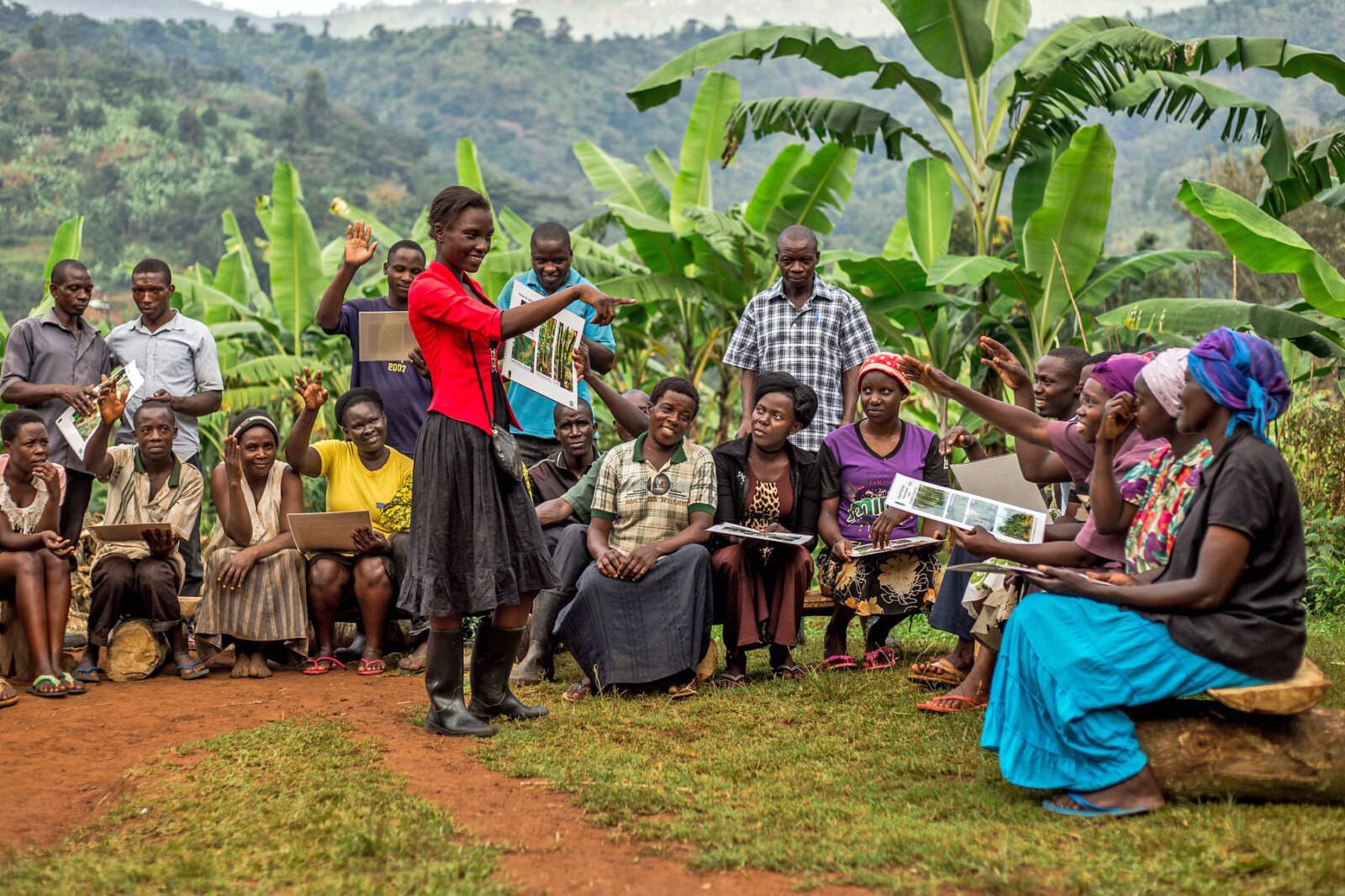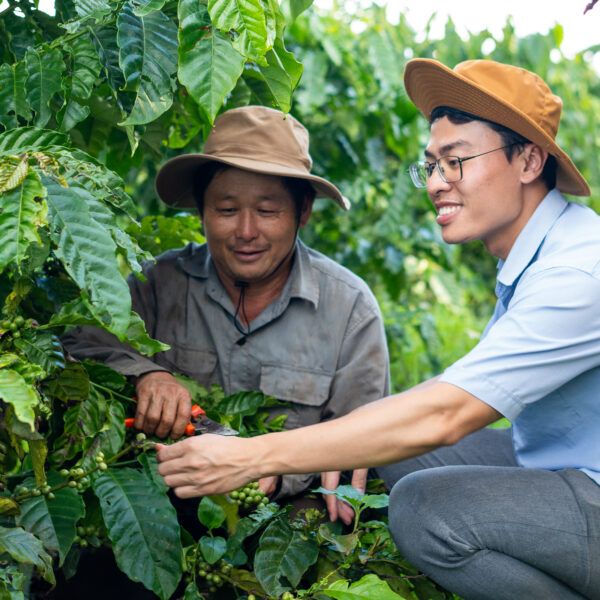In Uganda, coffee is primarily produced by smallholder farmers—1.5 million of them. Coffee farming is the main source of income for these families, yet the harvest of Uganda’s farmers is among the lowest in the world. In fact, most smallholder coffee households make too little money to cover their basic needs.
But Volcafé’s Kyagalanyi Coffee Ltd. has been working closely with the UTZ certification program (UTZ has since merged with the Rainforest Alliance) to equip these smallholder farmers with tools to increase their yields through sustainable farming methods. As a result of its highly effective efforts on behalf of smallholders and the environment, Kyagalanyi [CHA-gah-LA-nyee] Coffee won the 2018 Rainforest Alliance Sustainable Standard-Setter Award.
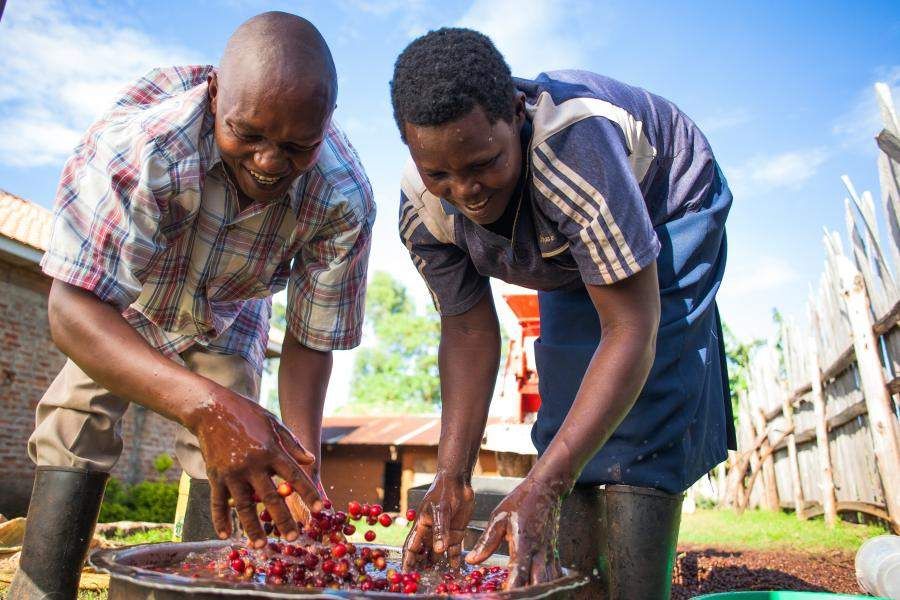
Kyagalanyi Regional Sustainability Manager Anneke Fermont explained that farmer well-being is a priority for the company. “The aim of our farmer-support program is to improve the livelihoods of more than 14,500 families through better coffee production and quality. Since we started working in West Nile and Mt. Elgon, coffee income has increased by 35 – 45 percent and 60 – 70 percent, respectively.” Fermont added, “The more we work in the communities, the more we understand the different social, economic, and environmental challenges that farmers face. Assisting communities and individual families to find solutions for these challenges helps to build a more sustainable coffee value chain that benefits everyone.”
Kyagalanyi is deeply committed to advancing sustainable livelihoods for Uganda’s coffee farmers, deploying a team of more than 80 agronomists and staff working in the field with farmers throughout the year. Besides providing individual farm visits and group agronomy trainings in more than 600 demo plots and 20 Volcafé Way model farms, the teams implement a range of special projects to address youth employment, gender equity, and climate change, among others.
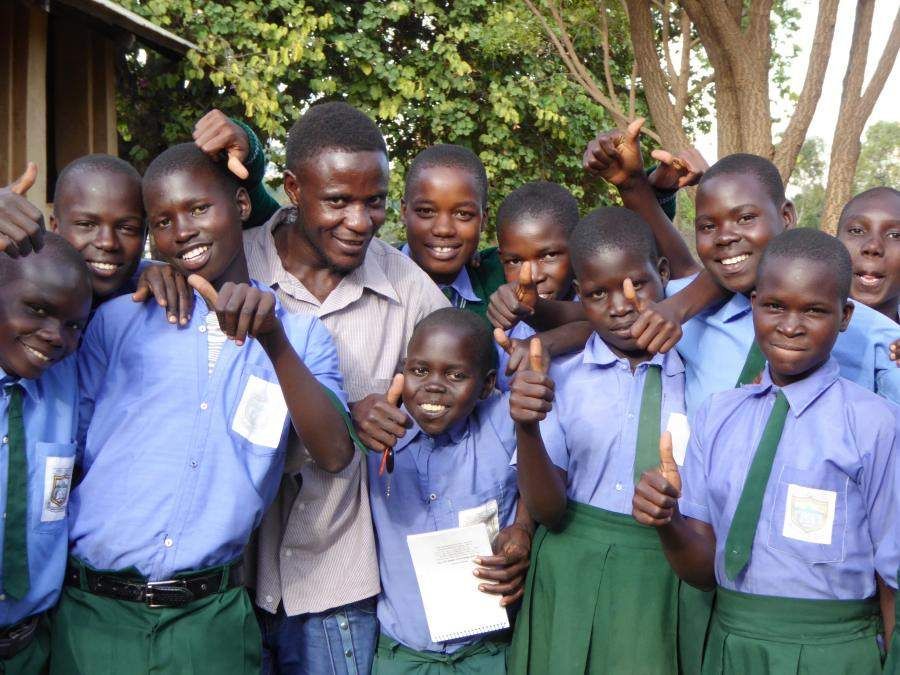
Kyagalanyi does not shy away from tackling tough social challenges. It has been a vocal leader in the effort to reduce child labor on Ugandan coffee farms, helping its growers develop secondary sources of income so that children can attend school instead of working on the farm. Thanks to a two-year initiative with international social justice organization Hivos and others, more than 500 Ugandan children—from both Kyagalanyi families and others in the community—returned to the classroom. According to Fermont, the Kyagalanyi team believes that transparency is critical to making meaningful change: “Instead of hiding child labor, we much prefer to put problems on the table and introduce a continuous improvement approach so we can support a long-term solution.” A second project, part of the UTZ Sector Program, is already underway to help more children and identify cost-effective approaches to fight child labor in coffee value chains.
“It’s deeply rewarding to visit families that have tripled coffee production and built a permanent house; to meet children who are back in school; to learn from couples how the coffee harvest game we developed has taught them to make joint decisions; and to encounter coffee youth teams that are expanding their business due to more demand,” Fermont said.
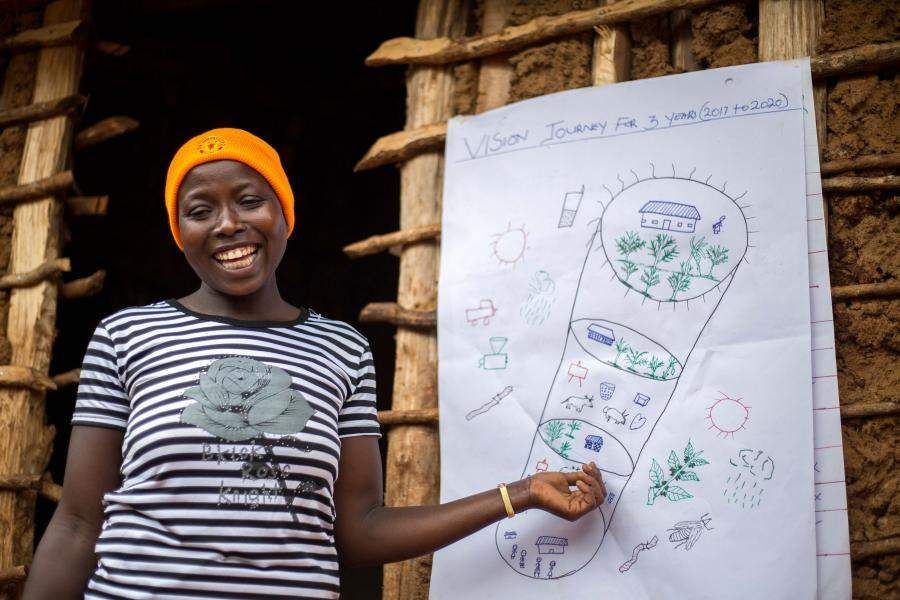
Fermont attributes Kyagalanyi’s success in part to a tenacious—and adventurous—field team. “Every day they are out there, climbing mountains, battling rain and slippery roads. It’s so hard to convince farmers to be the first adopters (of new practices). Yet, our field team always manages to do so!”
For Kyagalanyi, supporting farmers just makes good business sense. “It’s very satisfying to know that as long as we have good markets for our coffees, and we can build business cases for our work, we will be able to continue creating a positive change in the lives of so many,” Fermont said.
